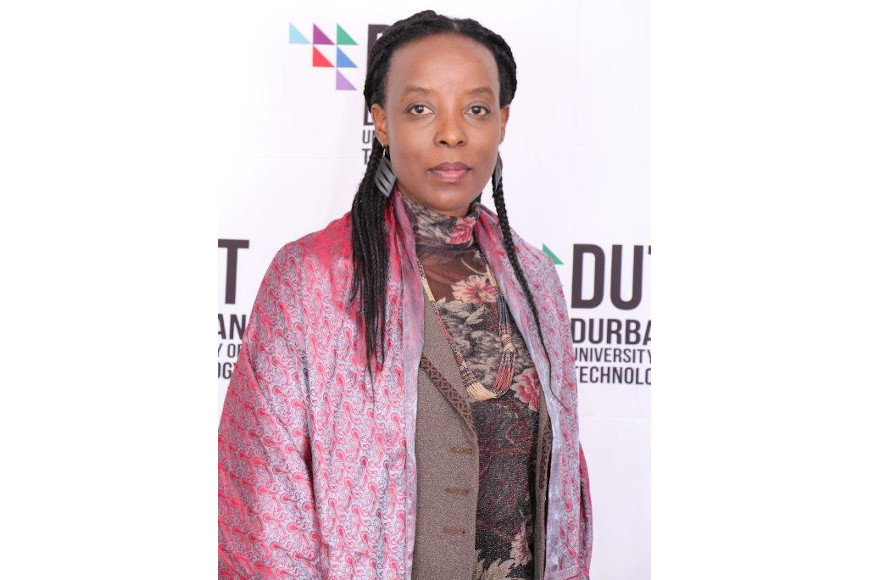Department of Technology, Transfer and Innovation (TTI) at the Durban University of Technology (DUT) hosted the Intellectual Property (IP) Workshop online via Microsoft Teams on Friday, 27 November 2020.
The Programme Director was TTI Director, Professor Keolebogile Motaung and the guest speakers consisted of Omphile Madibela, Head of Legal, Compliance and Technology Commercialisation at NTP Radioisotopes SOC Ltd, Dr Anathi Njokweni, an Intellectual Property Specialist and Trod Lehong, who is a qualified Patent Attorney.
In her welcoming address DUT’s Deputy Vice-Chancellor: Research, Innovation and Engagement, Professor Sibusiso Moyo said students need to understand that their Intellectual Property is very important because they need to be able to protect it, either patent, copyright or trademark it so that when other people use it, they can at least some money from that.
“What is important is also understanding the regulatory framework within out context and also the role that universities play. I believe the workshop will also assist with a number of policies and strategies which help to encourage people to be creative, to be innovative rather than just depending on the traditional ways of doing things,” said Prof Moyo.
Modibela who is a Patent Attorney spoke about the Introduction to IP, looking at what is Intellectual Property, what are the various ways to protect it and look at its advantages.
She said in terms of the World Intellectual Property Organisation (WIPO), they define Intellectual Property simple as any creation of the mind.
“Any product that comes from the employer of the mind would qualify, that includes inventions, artistic works, if you come up with any form of design, symbols that you get to use in commerce. Once the Intellectual Property is created and exploited appropriately, the owner is able to exploit it commercially and sell or license it to the third party. To even use it to protect their market share, by doing so they derive value from the implementation of the Intellectual Property. IP is valuable to the owner, people who create a product from their research work and from that product form a company. They then sell that products into the markets and are able to derive value for it. Other option is to license it from a third party, already established in the industry. They sell it to the markets and you derive value by way of royalties,” said Modibela.
Furthermore, she said when you think about how valuable Intellectual Property is, it goes without saying that it’s important that to protect it by getting Intellectual Property Rights. She said these are rights that prevent other people from using one’s Intellectual Property and to get financial benefits from the inventions.
Dr Njokweni spoke on the Intangibles to Tangibles, saying that her job is to access whether one’s invention is worth getting exclusive rights.
She said the requirements for patent is any invention that is new, that is invented and that is useful.
“One of the three requirements is that it has to be novel, novelty is very cheap, meaning it must not have been made public in any way, through presentation or publication in any language. If you believe you have an invention worth patent rights, it’s important that you go to the patent office and apply before anything else. Your invention has to be inventive meaning it must not be obvious to a person skilled in the art, a specialist in that particular field. Not something that somebody could easily make up. It has to be an invention solving a particular problem, it has to be useful,” said Dr Njokweni.
Lastly the Patent Attorney, Lehong spoke on Commercialisation of Intellectual Property, saying that IP intensive industries pay significantly higher wages because of the higher skilled requirements and knowledge of the people employed by these companies.
“The important aspect I want to bring up about commercialisation is that it is difficult and if everybody was able to do it, we would all be rich and for it. Countries that are successful in doing this, have been doing it for a long time.
They have experts in this area of commercialisation. It is a deep valley and it’s one of the challenges in South Africa, all the money we put into research where does it go to. We spend a lot of money trying to commercialise wrong ideas which end up not going to the shelf,” said Lehong.
Picture: DUT’s Deputy Vice-Chancellor: Research, Innovation and Engagement, Prof Sibusiso Moyo
Simangele Zuma


